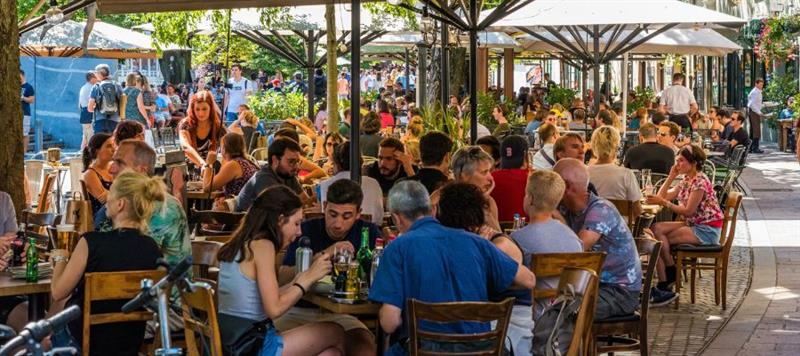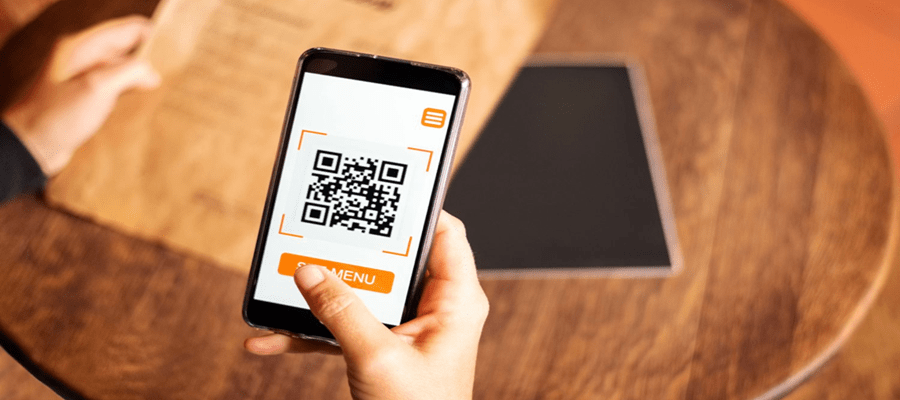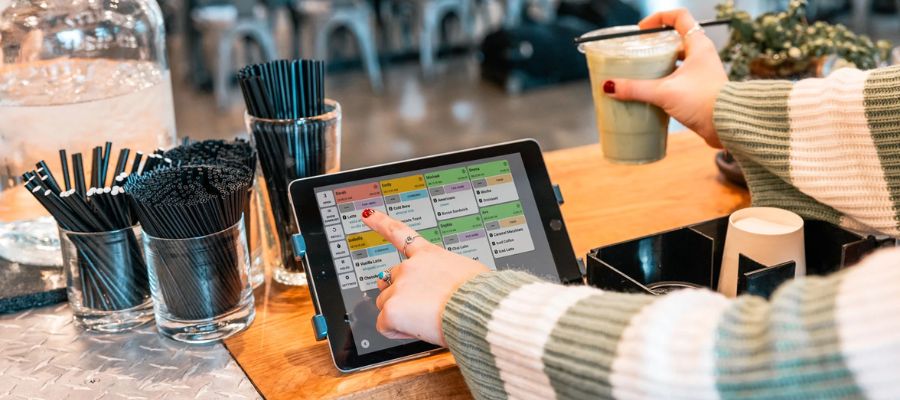
The Impact of POS Software on Customer Experience in Food Courts
In today’s fast-paced lifestyle, food courts have become a go-to dining option for individuals and families alike. From malls to multiplexes and corporate parks, these bustling hubs offer a variety of cuisines under one roof. But managing multiple vendors, high foot traffic, and long queues is no easy task. That’s where Food Court POS software steps in — transforming customer experience, streamlining operations, and boosting revenue.
Whether you're running a food court in Gurgaon, Delhi, or Jodhpur, the right Food Court Billing Software ensures seamless transactions, quick service, and efficient vendor management. Let’s dive into how POS technology is reshaping food court operations and elevating customer satisfaction.
1. Improving Order Management with Food Court POS
Faster Order Processing
One of the key aspects of customer experience is quick service. A reliable Food Court POS system allows staff to process orders swiftly, even during peak hours. With an intuitive interface, the POS enables centralized control, speeding up order input and reducing delays.
Real-Time Menu Updates
Food courts often host multiple vendors, each with dynamic menu offerings. A smart POS solution updates menu changes in real time, ensuring customers always see the most recent options, whether on kiosks, tablets, or display screens.
Minimizing Order Errors
Manual order-taking can lead to mistakes, especially when dealing with large volumes. POS software automates the process, significantly reducing errors, which results in greater accuracy and enhanced customer satisfaction.
2. Secure and Quick Payments with POS Software
Multiple Payment Options
Gone are the days of cash-only counters. With POS billing systems in Delhi food courts, customers can pay through various channels—cash, cards, UPI, and mobile wallets—giving them flexibility and convenience.
Safe Transactions
Security is paramount in payment processing. Advanced Food Court POS systems are equipped with encryption and fraud detection features, making every transaction secure and trustworthy.
Contactless Payments
Especially post-pandemic, the demand for contactless payments has surged. POS software supports QR-based and tap-to-pay methods, offering a hygienic, seamless experience that builds customer trust.
3. Queue Management and Reduced Wait Times
Real-Time Order Tracking
Long queues and uncertain wait times are major customer pain points. POS software provides real-time updates via digital display boards or SMS notifications, letting customers know when their order is ready.
Self-Service Kiosks
Self-ordering kiosks empower customers to browse menus, place orders, and pay without waiting for staff. This speeds up service and improves customer flow during busy hours.
Smart Staff Allocation
POS analytics help managers distribute staff based on footfall data. During rush hours, the system can recommend deploying more personnel to counters, ensuring smooth and efficient service.
4. Inventory and Waste Management in Food Courts
Real-Time Inventory Tracking
In food courts like those in Gurgaon and Delhi, managing stock across multiple vendors is critical. POS systems automatically update inventory levels after every transaction, reducing manual oversight and preventing overstocking or understocking.
Predictive Forecasting
By analyzing past sales data, POS software predicts future demand trends. This helps vendors plan purchases smartly, thereby reducing food waste and controlling costs.
Boosting Profit Margins
With effective inventory control, vendors avoid spoilage and unnecessary purchases. This leads to better cost efficiency, which positively impacts their bottom line.
5. Multi-Vendor and Franchise Integration
Centralized Billing
One of the biggest advantages of POS systems in food courts is the centralized billing system. Customers ordering from multiple stalls can pay once at a single counter or via a unified kiosk, streamlining the payment process.
Transparent Vendor Reporting
Food court owners can track individual vendor sales, ensuring accurate revenue sharing. Transparent reporting builds trust among vendors and simplifies financial reconciliation.
Franchise-Friendly Operations
POS software ensures consistent pricing, menu updates, and tax compliance across multiple franchise outlets within the same food court. It’s ideal for large food brands with a presence in malls and commercial complexes.
6. Simplifying Taxation and Legal Compliance
Automated GST Calculation
India’s tax landscape requires strict adherence to GST norms. POS billing systems automatically calculate applicable taxes and generate compliant invoices—eliminating manual errors and audit risks.
Seamless Invoicing
Customers receive digital or printed invoices with all legal details, while vendors can maintain records effortlessly. This adds professionalism and improves the overall service perception.
Smart Reporting for Audits
Food court owners can access detailed financial reports, which help in audits, business analysis, and filing returns. With all data stored securely on the cloud or local servers, compliance becomes hassle-free.
7. Loyalty Programs and Customer Retention Strategies
In a competitive food court environment, retaining customers is just as important as attracting new ones. POS systems offer custom loyalty programs that encourage repeat business.
Cashless Loyalty Cards
Prepaid or loyalty cards let customers top up and make purchases without handling cash. These cards often come with added benefits and are great for regular visitors.
Exclusive Member Benefits
Customers can enjoy VIP perks, discounts, and faster service when they enroll in membership programs managed by the POS system.
Cashback and Gift Options
POS-powered cashback rewards and gift card options make it easier for customers to gift dining experiences, helping food courts expand their reach.
Tablet Integration
Loyalty programs can be accessed through tablets at counters or self-service points. Integrated data ensures a smooth and tech-savvy experience, increasing engagement.
Conclusion
The impact of POS software on food court customer experience is nothing short of transformational. From faster ordering and secure payments to efficient vendor management and automated compliance, POS technology is the backbone of modern food courts.
For businesses in Delhi, Gurgaon, or Jodhpur, adopting the right Food Court Billing Software is essential to stay competitive. It not only elevates customer satisfaction but also boosts operational efficiency and revenue.


